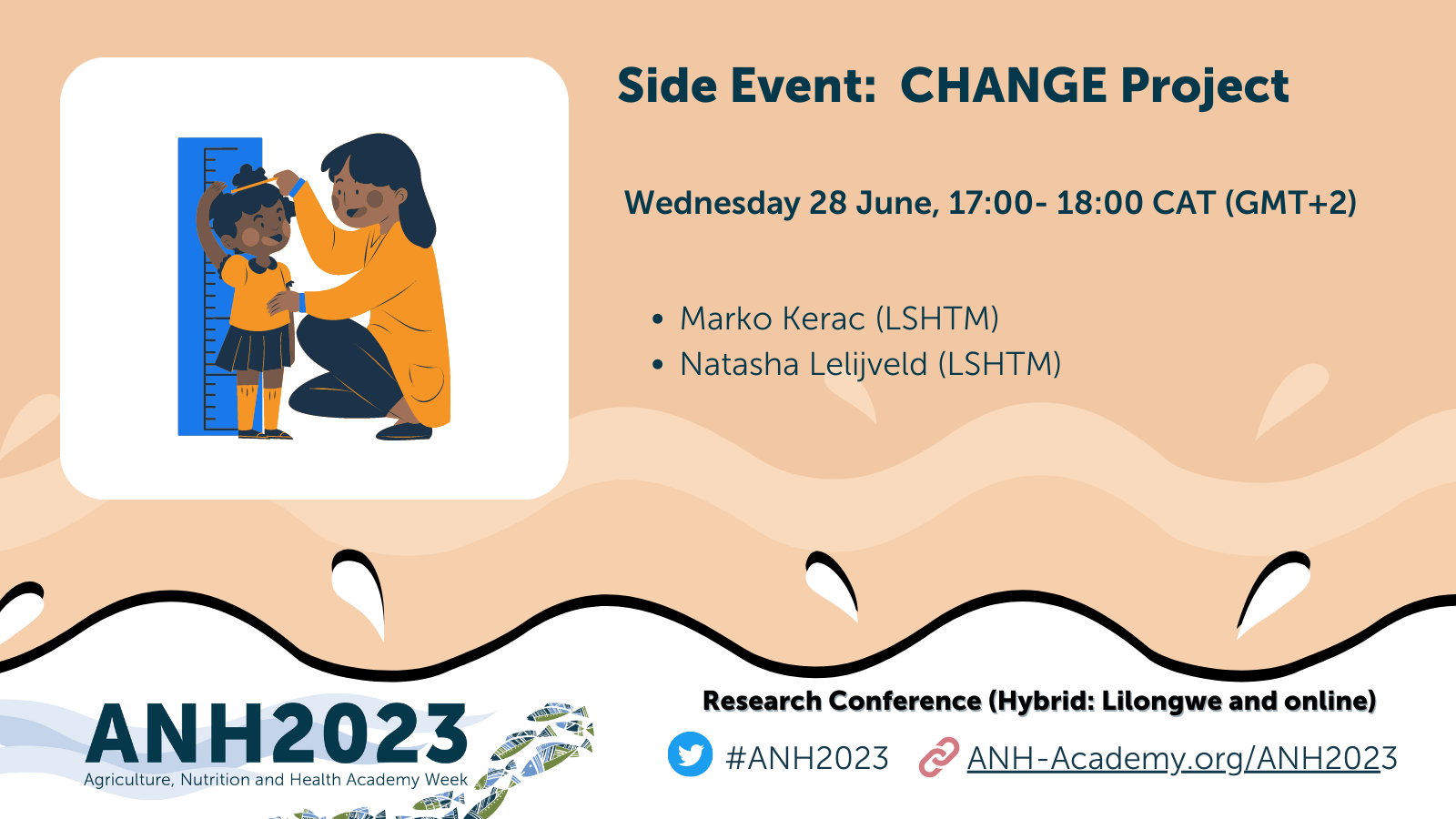Open Full Event


We regret to inform potential online attendees, that this event will be in-person only.
Times are in CAT (GMT+2)
Description
Child malnutrition is a major global public health problem affecting millions worldwide. There is an urgent need to optimize treatment programme efficacy.
Challenges include:
- Ensuring children thrive as well as survive: Current programmes focus on averting malnutrition-associated death. However, they do not account for increasing evidence that survivors are at risk of long-term health problems from non-communicable disease (NCD) e.g. heart disease/diabetes/obesity.
- Meaningful outcome measurement: Current programmes consider a return to normal weight as a key marker of success. However, what really matters is health and measuring this (including NCD risk) is difficult.
- Question assumptions around rapid post-malnutrition weight gain (PMWG): Current programmes often encourage rapid weight gain following malnutrition. However, high-income country (HIC) data show that too rapid a weight gain in small infants can cause harm by increasing future NCD risk. Whether this trade-off between too slow vs too fast weight recovery also applies in low-and middle-income countries (LMIC) is unknown.
Aiming to find solutions to these problems, CHANGE is a multi-country, multi-partner project following adult and child cohorts in Malawi, Jamaica and Ethiopia. Initial results will be shared and implications for malnutrition treatment programmes worldwide will be discussed.
Read more about the CHANGE project.
Organizations involved:
- London School of Hygiene and Tropical Medicine (LSHTM):
- MEIRU Malawi
- Jimma University, Ethiopia
- University of West Indies, Jamaica
- Cambridge University, UK
- Southampton University, UK
Speakers
- Marko Kerac (LSHTM)
- Natasha Lelijveld (LSHTM)
Check out our ANH2023 communications toolkit media toolkit for useful Twitter handles, graphics and other materials.

